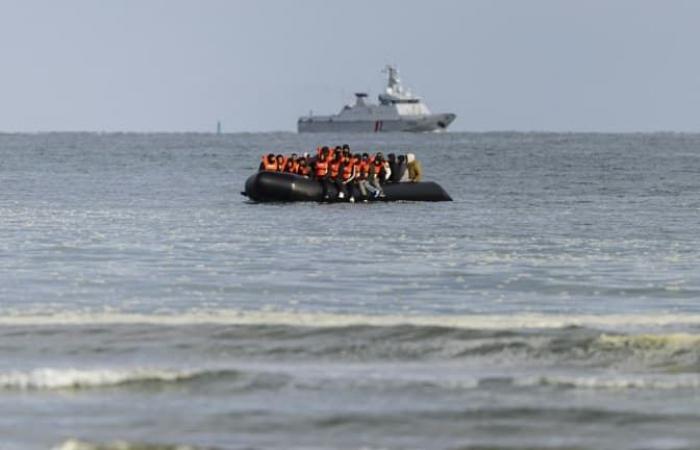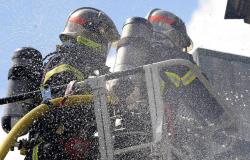Osama, a young Syrian, was shipwrecked while attempting for the third time to cross the Channel on a canoe on the night of October 22 to 23. He is looking for his father with whom he lost contact when the boat sank.
Behind the ever-growing list of exiles who died in the Channel while trying to reach England, another list emerges, that of the missing. For two long weeks, Osama, a young Syrian, has been looking for his father, with whom he lost contact when their canoe sank.
“I live with great hope of finding him. Insh’Allah, I will find him.” Youthful face surrounded by a collar of beard, eyes shining under long curled eyelashes, Osama Ahmed, 20 years old, recounts, from a house in Calais where the La Margelle association welcomes him, the steps taken to locate his father Ahmed Ahmed , whose death remains inconceivable for him.
The young man's life seems to have frozen on the night of October 22 to 23.
The father and son then tried for the third time to reach England, as more than 30,000 migrants have done since January.
The boat quickly took on water
At the signal from the smugglers, the group of around sixty people hidden in the dunes rushes towards a canoe already afloat – but the boat has barely traveled 1 km before water begins to enter it. The group turned around but the smugglers who remained on the beach pushed them back out to sea, reports Osama.
According to him, they had promised them life jackets, but when they left, they finally explained to them that they were damaged.
Shortly after departure, the boat completely deflates and all the passengers fall into the sea. For the first half hour, Osama and his father are clinging together, but when the boat breaks apart, they find themselves separated. , in darkness and panic. Two ferries passed by them before help finally arrived, he said.
Their boat was wrecked two kilometers from the French coast, according to the maritime prefecture. A woman and two men were found dead, but the discrepancy between the number of survivors, 45, and testimonies suggesting a higher number of passengers quickly led to fears of missing persons.
Since this shipwreck, which has already been followed by other tragedies in the English Channel, nine bodies have been discovered at sea or washed up on the beaches of Pas-de-Calais.
An engraved ring as your only personal effect
Suffering from salt water and fuel burns, Osama was taken to hospital. When he wakes up there, he asks where his father is, then starts looking for him in police stations, hospitals, and the Red Cross. In vain.
The young man described his clothes and the ring with his name engraved to the police. The police also take his DNA. Each time a body is discovered, he expects to learn that it is his father. This has not been the case until now.
While waiting for news, all his life plans remain on hold. He smiles with all his teeth when he describes his father, the “kindest man in the world”, “[son] example in this life”, showing on his phone the photo of a fifty-year-old with a gray mustache, in a white shirt and jacket. His family fled Syria 13 years ago to settle in Turkey. Two brothers of Osama have already passed through England, also on “small boats”.
In many shipwrecks, “there are missing people” and “their loved ones have great difficulty accessing services that could help them in their search”, underlines Jeanne Bonnet, co-founder of La Margelle.
“We sometimes feel like we're being shuffled from department to department” and, as in Osama's case, “it's always ours [les proches et les associations] to go get the information,” she laments.
She is also outraged that no accommodation solution was offered to the young man, traumatized and injured, when he left the hospital. He returned to live in a camp, before being spotted by associations and welcomed to La Margelle.
Since November 1, despite falling temperatures and fog, nearly 1,200 migrants have reached the English coast aboard “small boats”, according to official British figures. At least 60 have died in the Channel since January 1, not counting the latest bodies discovered and the missing, a record since these crossings began in 2018.






